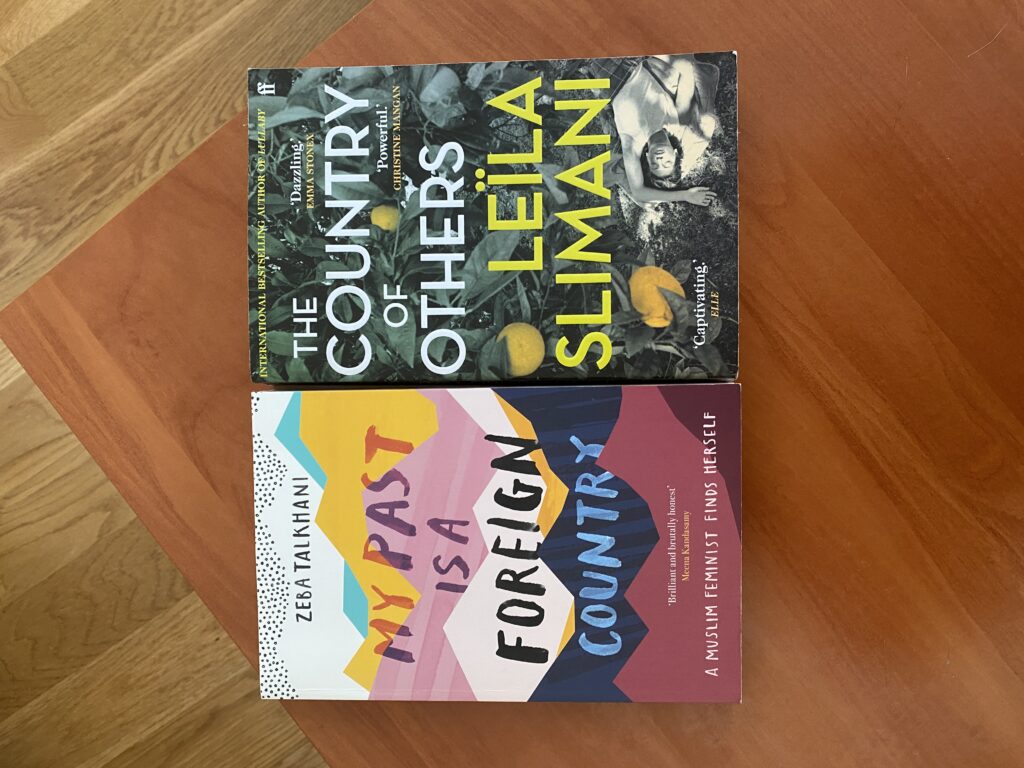My Past is a Foreign Country, Zeba Talkhani
Talkhani is an Indian-born Muslim woman who was raised in Jeddah, Saudi Arabia, and her memoir talks about her reckoning with the cultures she grew up with as she discovers self-love and feminism. As she becomes more and more educated, she goes first to Germany and then the United Kingdom to escape the gender roles that are always pursuing her, specifically those of feminine beauty ideals and marriage. Talkhani talks a lot about diverging from what is expected of her and how that affected her relationships with her family members, particularly her parents, while also acknowledging the profound financial privilege she has, as her father pays for all of her education and supports her in her desires to live abroad. However, in the end she falls into the traditional pattern expected of her and gets married – but on her own terms. The last dozen pages of the book feel as though she is justifying her choice to get married to the reader and even convincing herself that it is possible to be married and fight against the patriarchy at the same time, which is something I connect with deeply as well, as I have been dedicating a lot of time to thinking about the same issues as of late.
The Country of Others, Leïla Slimani
This book is the first of a proposed trilogy (the second book came out last year and the third is to be published) about the Moroccan fight for independence from colonial France and the years after independence. The Country of Others follows Mathilde, a French woman who marries a Moroccan soldier who fought for France in the Second World War, and who moves to Morocco following the war. Her husband, Amine, inherited land in the countryside outside of Meknes and wants to run a successful farm. Mathilde was looking for adventure, and although she loved living in Meknes, which they did until the house in the country was ready, she quickly comes to resent the life she leads on the farm, which is lonely and difficult. What I really loved about this book was the depth of the characters and Slimani’s ability to depict history without its romanticization: we see both the good and bad parts of Mathilde and Amine, as well as the portrayal of Morocco as it really was, filled with racism on the part of the French, and the struggle of Moroccans to reject French control while coming to terms with its long-term effects. I look forward to reading part two of the trilogy, hopefully very soon.

